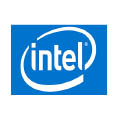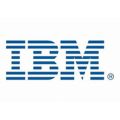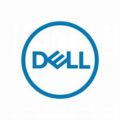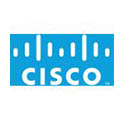
Overview
GAO Tek offers hydrogen gas detectors essential in the information industry compliance and is trusted by the top companies in the US and Canada.
The information industry, ensuring safety and efficiency. They sense the presence of hydrogen gas, vital in environments where it’s used for cooling or processes. In data centers, where hydrogen-cooled generators are common, detectors prevent hazards like explosions. Using electrochemical, infrared, or semiconductor sensors, they swiftly identify hydrogen concentrations. Alarms trigger upon detection, prompting swift action to mitigate risks. Advanced detectors offer remote monitoring and integration with building systems, enhancing safety measures. In summary, hydrogen gas detectors are indispensable for safeguarding personnel and assets in data centers and similar environments.
Depending on specific features and functions, GAO Tek’s hydrogen gas detectors are sometimes referred to as monitors, detectors, meters, and analyzers.
Furthermore, GAO Tek’s hydrogen gas detectors are further grouped into:
catalytic, electrochemical, explosion-proof, handheld, high precision, alarm, colour LCD display, data logging, USB connectivity, industrial, infrared, outdoor, and photoionization.
GAO Tek’s hydrogen gas detectors have the following applications in the information industry:
- Data Centers: GAO Tek’s hydrogen gas detectors are often used as backup power sources in data centers. Hydrogen gas detectors play a critical role in these environments by continuously monitoring for leaks. Early detection of hydrogen gas leaks helps prevent potential hazards such as explosions or fires, safeguarding both personnel and sensitive data infrastructure.
- Telecommunication Facilities: Telecommunication facilities, including network operation centers and communication hubs, may also utilize GAO Tek’s hydrogen gas detectors for backup power systems. Like data centers, hydrogen gas detectors are essential in these environments to detect and mitigate leaks swiftly, ensuring uninterrupted communication services.
- Server Rooms and IT Facilities: GAO Tek’s hydrogen gas detectors serve as a proactive safety measure against potential hydrogen leaks from equipment such as batteries or cooling systems. Detecting gas leaks early can prevent damage to hardware and ensure the continuity of critical IT operations.
- Research Laboratories: Research laboratories within the information industry may use GAO Tek’s hydrogen gas detectors for various experiments or as part of specialized equipment. Hydrogen gas detectors are employed in these settings to maintain a safe working environment, protecting researchers and expensive equipment from potential risks associated with gas leaks.
- Cloud Computing Centers: Cloud computing centers, which form the backbone of modern digital services, rely on uninterrupted power to ensure continuous service availability. GAO Tek’s hydrogen gas detectors help maintain operational continuity by detecting any hydrogen leaks from backup power systems, mitigating potential disruptions to cloud services.
- Semiconductor Manufacturing Facilities: GAO Tek’s hydrogen gas detectors are deployed to monitor for leaks in these highly controlled environments, ensuring worker safety and preventing potential damage to sensitive semiconductor fabrication equipment.
- Data Storage Facilities: GAO Tek’s hydrogen gas detectors are essential in these facilities to detect any leaks from storage tanks or distribution systems, mitigating risks of ignition or explosion and preserving the integrity of stored data.
More information on hydrogen gas detectors and their applications in other industries can be found on hydrogen gas detectors. This category page lists related products environmental
Systems in the Information Industry utilizing Hydrogen Gas Detectors
Here are some popular systems in the information industry using hydrogen gas detectors:
Hydrogen Cooling Systems in Data Centers:
- Data centers often employ hydrogen cooling systems to maintain optimal temperatures for servers and other equipment. These systems utilize hydrogen as a highly efficient coolant. Hydrogen gas detectors are integrated into these systems to monitor for leaks, ensuring the safe operation of the cooling infrastructure and preventing potential hazards such as explosions or fires.
Hydrogen Backup Power Systems:
- Many facilities within the information industry, including data centers, telecommunication hubs, and server rooms, rely on hydrogen-based backup power systems to ensure uninterrupted operations during power outages. These systems typically store hydrogen in tanks and use fuel cells or generators to produce electricity when needed. Hydrogen gas detectors are essential components of these systems, continuously monitoring for leaks to maintain a safe environment and prevent disruptions to critical operations.
Hydrogen Energy Storage Systems in Cloud Computing Centers:
- Cloud computing centers increasingly utilize hydrogen energy storage systems to manage energy demands efficiently and reduce reliance on traditional power grids. These systems store excess energy generated during low-demand periods as hydrogen, which can later be converted back to electricity as needed. Hydrogen gas detectors are crucial components of these systems, ensuring the safe handling and storage of hydrogen to prevent leaks and maintain operational safety.
Hydrogen-based Research and Development Laboratories:
- Research and development laboratories within the information industry often utilize hydrogen gas in various experiments and processes, such as material synthesis and characterization. Hydrogen gas detectors are integrated into these laboratory setups to monitor for leaks and ensure the safety of researchers, equipment, and surrounding environments. These detectors play a vital role in preventing accidents and maintaining a secure working environment for conducting experiments and developing innovative technologies.
Hydrogen Fuel Cell-Powered Vehicles Charging Stations:
- As the automotive industry transitions toward hydrogen fuel cell-powered vehicles, charging stations are becoming more prevalent. These stations store and dispense pressurized hydrogen gas for refueling fuel cell vehicles. Hydrogen gas detectors are integrated into these charging stations to monitor for leaks during the refueling process, ensuring the safety of both users and the surrounding environment.
Hydrogen Gas Distribution Networks for Industrial Parks:
- Industrial parks housing various information industry facilities often have centralized hydrogen gas distribution networks to supply hydrogen for different applications, such as power generation and manufacturing processes. These networks require robust safety measures, including the integration of hydrogen gas detectors along the distribution pipelines and at storage facilities to detect and mitigate any leaks promptly, minimizing risks to personnel and infrastructure.
Hydrogen-Powered Uninterruptible Power Supply (UPS) Systems:
- Some critical information industry infrastructure, such as data centers and telecommunications facilities, utilize hydrogen-powered uninterruptible power supply (UPS) systems for backup power. These systems store hydrogen as a fuel source and utilize fuel cells to generate electricity during power outages. Hydrogen gas detectors are essential components of these UPS systems, continuously monitoring for leaks to ensure the safe operation of the backup power infrastructure and prevent potential disruptions to critical operations.
GAO Tek’s targeted markets are North America, particularly the U.S. and Canada.
Complying with Government Regulations
GAO Tek’s hydrogen gas detectors a comply or help our customers comply with the U.S. government regulations such as:
- National Institute for Occupational Safety and Health (NIOSH) Guidelines
- American National Standards Institute (ANSI) Standards
- National Institute of Standards and Technology (NIST) Guidelines
- Federal Emergency Management Agency (FEMA) Regulations
- Department of Homeland Security (DHS) Guidelines
- United States Chemical Safety Board (CSB) Recommendations
- State and Local Fire Codes and Regulations
- Occupational Safety and Health Administration (OSHA) Regulations
- National Fire Protection Association (NFPA) Standards
- Environmental Protection Agency (EPA) Regulations
- Department of Transportation (DOT) Regulations
- International Building Code (IBC) and International Fire Code (IFC)
GAO Tek’s hydrogen gas detectors comply or help our clients comply with the Canadian regulations such as:
- Canadian Centre for Occupational Health and Safety (CCOHS) Regulations
- Canadian Standards Association (CSA) Standards
- Transportation of Dangerous Goods (TDG) Regulations
- Natural Resources Canada (NR Can) Guidelines
- Canadian Environmental Protection Act (CEPA) Regulations
- Canadian Electrical Code (CEC) Requirements
- Canadian Environmental Assessment Act (CEAA) Guidelines
- Health Canada Regulations
- Workplace Hazardous Materials Information System (WHMIS) Requirements
- Canadian Environmental Assessment Agency (CEAA) Guidelines
- Canadian Nuclear Safety Commission (CNSC) Regulations
- Canadian Environmental Protection Act, 1999 (CEPA) Guidelines
Case Studies of Hydrogen Gas Detectors in the Information Industry
Hydrogen gas detectors are sometimes called monitors, detectors, meters, and analyzers.
Here are some practical examples of using hydrogen gas detectors in the information industry:
In the Northeast region of the New York, hydrogen gas detectors find practical application in data centres, where uninterrupted power supply is critical for information systems. Data centers often utilize hydrogen fuel cells as a backup power source to ensure continuous operation during grid outages.
In the Northeast region of Washington, hydrogen gas detectors are employed to monitor the presence of hydrogen, which is used in fuel cells, ensuring the safe operation of these backup systems. Prompt detection of hydrogen leaks is essential to prevent potential fire hazards or explosions.
In the Northeast region of United States, integrating hydrogen gas detectors into their safety protocols, data centres in the Northeast region uphold the reliability and security of vital information infrastructure.
In the Midwest region of the Chicago, hydrogen gas detectors play a crucial role in supporting the telecommunications industry, particularly in remote cell towers and communication hubs.
In the Midwest region of the Ohio, these facilities often rely on hydrogen fuel cells as a clean and efficient power source for backup energy in case of grid failures or emergencies. Hydrogen gas detectors are strategically placed within these sites to continuously monitor for any leaks or buildup of hydrogen gas, ensuring the safety of personnel and infrastructure.
In Midwest region of Wisconsin and Minnesota, by promptly detecting any potential hydrogen leaks, these detectors help prevent hazardous situations and uphold the reliability of communication networks, enabling seamless connectivity and information exchange across the Midwest region.
In the Southern region of Florida, hydrogen gas detectors are instrumental in the oil and gas industry, particularly in facilities involved in the refining and processing of petroleum products. Many refineries and petrochemical plants utilize hydrogen gas extensively in various processes such as hydrotreating and hydrocracking.
From the bustling ports of Texas and Louisiana to hydrogen gas detectors are deployed throughout these facilities to monitor the levels of hydrogen in the air, ensuring safe working conditions for employees and preventing potential explosions or fires due to leaks.
Alabama and Mississippi, these detectors help mitigate risks and uphold the operational integrity of vital infrastructure in the Southern region’s oil and gas sector, contributing to the safe and efficient production of fuels and other petroleum-based products.
In the West region of California, hydrogen gas detectors are essential safety components within renewable energy infrastructure, particularly in facilities harnessing hydrogen as an energy storage medium or as a component of renewable energy production.
In the West region of Nevada, hydrogen is increasingly utilized in electrolysis processes to store excess energy generated from renewable sources such as solar and wind power.
In Western region of Montana, hydrogen gas detectors are deployed in these facilities to monitor for potential leaks or releases of hydrogen gas, ensuring the safety of workers and nearby communities. By promptly detecting any deviations from safe hydrogen levels, these detectors contribute to the continued growth and sustainability of renewable energy initiatives across the Western region, fostering a cleaner and more resilient energy infrastructure.
In the Canadian region, such as Manitoba and Saskatchewan, hydrogen gas detectors are crucial components in industries such as mining and metallurgy, where hydrogen is often used in various processes. Mines and metallurgical plants utilize hydrogen for tasks such as metal refining, hydrogenation reactions, and as a reducing agent in smelting processes.
In the Canadian region of Artic, hydrogen gas detectors are strategically placed throughout these facilities to continuously monitor the atmosphere for any leaks or accumulation of hydrogen gas. Prompt detection of hydrogen leaks is essential to prevent potential safety hazards, such as explosions or fires,
In the Canadian region of Quebec, by integrating hydrogen gas detectors into their safety protocols, industries in the Canadian region uphold stringent safety standards and protect both personnel and infrastructure, thereby facilitating the efficient and secure operation of vital mining and metallurgical activities.
GAO RFID Inc. RFID Hardware, a sister company of GAO Tek Inc., is ranked as a top 10 RFID suppliers in the world. Its RFID, BLE, and IoT products have also been widely used in the information industry. Articles about related industries are given below:
Information and Telecommunications Industry
Use of Hydrogen Gas Detectors with Leading Software and Cloud Services in the Information Industry
GAO Tek has used or has facilitated its customers to use GAO’s hydrogen gas detectors with some of the leading software and cloud services in their applications. Examples of such leading software and cloud services include:
- Amazon Web Services (AWS)
- Microsoft Azure
- Google Cloud Platform (GCP)
- IBM Cloud
- Oracle Cloud
- Salesforce Commerce Cloud
- Shopify
- Adobe Commerce Cloud
- SAP Commerce Cloud
- Alibaba Cloud
- Rackspace Technology
- VMware Cloud
- Cisco Meraki
- Digital Ocean
- Red Hat OpenShift
GAO Tek’s hydrogen gas detectors and their applications in other industries are listed on hydrogen gas detectors. Other related products can be found at this category page environmental
Meeting Customers’ Demands
Large Choice of Products
In order to satisfy the diversified needs of their corporate customers, GAO Tek Inc. and its sister company GAO RFID Inc. together offer a wide choice of testing and measurement devices, network products, RFID, BLE, IoT, and drones.
Fast Delivery
To shorten the delivery to our customers, GAO has maintained a large stock of its products and can ship overnight within the continental U.S. and Canada from the nearest warehouse.
Local to Our Customers
We are located in both the U.S. and Canada. We travel to customers’ premises if necessary. Hence, we provide very strong local support to our customers in North America, particularly the U.S. and Canada.
Furthermore, we have built partnerships with some integrators, consulting firms, and other service providers in different cities to further strengthen our services. Here are some of the service providers in the information industry we have worked with to serve our joint customers:
- IBM
- Microsoft
- Oracle
- Amazon
- Cisco
- Dell
- HP (Hewlett-Packard)
- Intel
- SAP
- Salesforce
- VMware
- Adobe
- Accenture
- Huawei
GAO Has Many Customers in the Information Industry
The products from both GAO Tek Inc. and GAO RFID Inc. have been widely used in the information industry by many customers, including some leading companies. Here is more information on applications of GAO RFID Inc.’s products in the information industry. Articles about related industries are given below:
Information and Telecommunications Industry
Here are some of GAO’s customers in the information industry:
- Apple Inc.
- Facebook, Inc.
- Alphabet Inc. (Google)
- Microsoft Corporation
- com, Inc.
- International Business Machines Corporation (IBM)
- Oracle Corporation
- Intel Corporation
- Cisco Systems, Inc.
- Dell Technologies Inc.
- Alibaba Group Holding Limited
- NVIDIA Corporation
- Samsung Electronics Co., Ltd.
- SAP SE
- LinkedIn Corporation (Microsoft)
- Netflix, Inc.
- Uber Technologies, Inc.
- Adobe Inc.


















Contact Us
Here are GAO Tek’s hydrogen gas detectors and they are further organized by feature:
catalytic, electrochemical, explosion-proof, handheld, high precision, alarm, colour LCD display, data logging, USB connectivity, industrial, infrared, outdoor, and photoionization.If you have any questions about our products or want to place an order, our technical experts can help you. Please fill out this form or email us.
